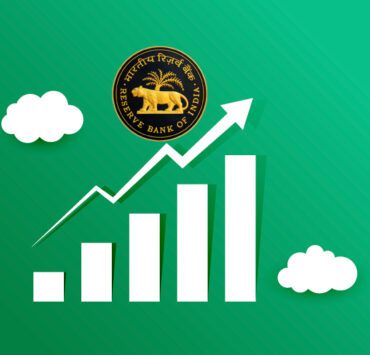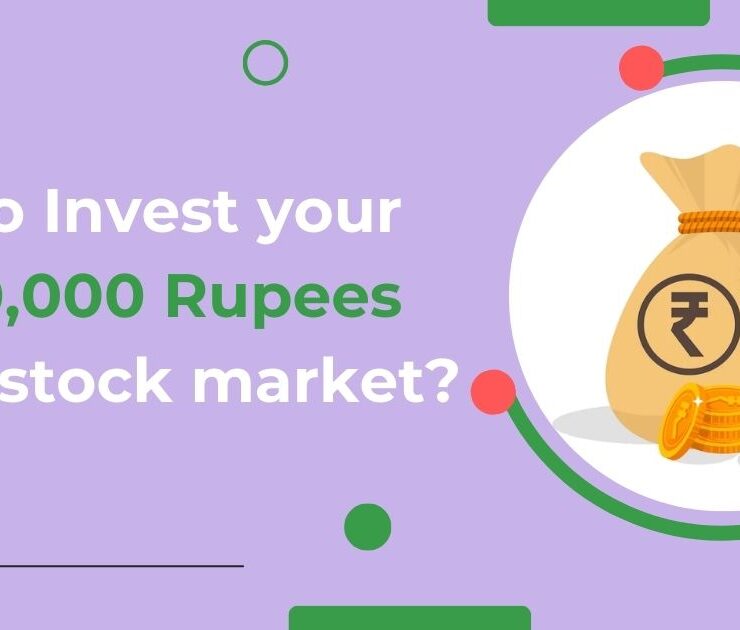How Will the RBI’s Monetary Policy Affect Market Mood?

The Reserve Bank of India’s latest monetary policy is out! Will it make borrowing more expensive or cheaper, or will things remain as they were?
Do you stand to make more money on your investments, post announcement? Or should you expect losses? Find out below!
After 3 days of contemplation and discussion, the Monetary Policy Committee (MPC) of the Reserve Bank of India (RBI) has finally announced that they will keep the repo rate unchanged at 6.5% for the fifth time. What does this mean for the market?
First, let’s understand the RBI’s repo rate in more detail.
What is the RBI’s repo rate?
The repo rate is when the Reserve Bank of India lends money to commercial banks. If the repo rate is increased, the commercial banks pay higher interest on their loans from the RBI, this interest trickles down to every borrower – home loans, car loans, personal loans – all become more expensive for the average Indian.
The RBI manages the money flow into the market using the repo rate. By increasing the repo rate, commercial banks are inhibited from borrowing from the RBI. In turn, individuals and businesses are inhibited from borrowing from commercial banks. This restricts the flow of money in the economy and, by extension, controls inflation.
Why did the RBI decide to keep the repo rate the same?
The RBI’s monetary policy is based on the Consumer Price Index (CPI), which reflects the country’s retail inflation. If the RBI wants to curb inflation, it will increase the repo rate. Conversely, by lowering the repo rate, loans would become cheaper, increasing the money supply in the market and helping the economy grow.
The current 6.5% rate is considered tight, to keep inflation in check. The RBI’s target for inflation in India is 4%. As food inflation is on the rise and may continue to increase due to global factors and adverse weather events, the RBI need not lower the repo rate. Simultaneously, core inflation is already around 4%, which means the RBI doesn’t need to increase the rate either.
How does this unchanged repo rate impact the markets?
- Right before the RBI’s monetary policy announcement, the Nifty 50 hit the 21000-mark for the first time. After the announcement, it was trading 0.4% up.
- The 30-stock Sensex hit a lifetime high of 69888.33 points before the announcement and continued the upward trend trading 0.4% until the announcement was made.
- The Bank Nifty took a 0.7% leap to hit a fresh lifetime high of 47,170.25.
- Rate-sensitive sectors such as banking, financial services and real estate continued to gain after the RBI’s announcement.
- Conversely, the Nifty Auto index was trading in the red after the announcement.
- Considering the announcement has a positive impact on home loans and by extension, the entire housing and real estate sector, realty companies like Prestige Estates Projects, Macrotech Developers (Lodha), DLF and Sobha rose 1-4%.
What does this mean for you, the investor?
Experts and analysts say the market is expected to continue its bullish trend, especially the banking and financial stocks, hoping that Bank Nifty could hit 48800-50000. In the immediate future, the stock market will likely experience a steady momentum, buoyed by a stable policy environment and strong economic indicators.
Apart from banking and finance, credit-sensitive sectors like housing, real estate and auto are also likely to see growth.
While the banking and financial sector experienced a boost, another key takeaway from the monetary policy was the emphasis on inflation control. This could mean cautious investment in sectors heavily reliant on raw material prices.
Our Final Thoughts
Besides the repo rate, the Monetary Policy Committee revised their GDP projection from 6.5% to 7%, indicating an overall positive outlook towards the nation’s economy. RBI Governor Shaktikanta Das said, “Indian economy presents a picture of resilience, momentum; fundamentals remain strong,” which is good news for everyone now!
📬Also Read: Your Arihant Plus Experience Just Leveled Up with 8 Cool Features








